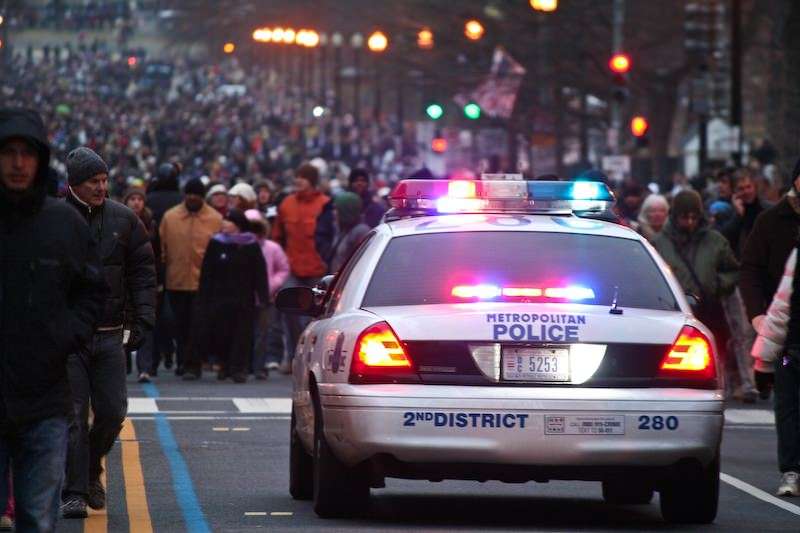D.C. Police's Asset Forfeitures Are Very Lucrative and Very Petty


The Washington Post's original three-part, in-depth look at the use and abuse of police civil asset forfeiture seems to have transformed into an open-ended, ongoing series. Over the weekend they posted a sixth installment exploring grabby police departments taking their citizens' cash and belongings.
This time they kept it local, noticing that Washington, D.C.'s, police are actually attempting to plan in its budget for asset forfeiture proceeds in advance. This is considered a no-no for any law enforcement agency participating in the Department of Justice's Equitable Sharing Program, the program where the feds and local enforcement agencies team up, and the local police get to keep 80 percent of whatever's seized. This planning came to light to the Post last week because members of D.C.'s Council are attempting to overhaul the city's asset forfeiture guidelines to increase the threshold of proof and requiring all asset seizures—including the ones that come from the DOJ program—to be placed in D.C.'s general fund, rather than the police's budget, thus seriously reducing the police's incentives for snatching whatever they can.
And just look at what they've snatched:
Since 2009, D.C. officers have made more than 12,000 seizures under city and federal laws, according to records and data obtained from the city by The Washington Post through the District's open records law. Half of the more than $5.5 million in cash seizures were for $141 or less, with more than a thousand for less than $20. D.C. police have seized more than 1,000 cars, some for minor offenses allegedly committed by the children or friends of the vehicle owners, documents show.
They're literally just taking the money out people's wallets at this point. And the authorities cash in even more whenever somebody fights back:
One case cited by the Public Defender Service involves Sharlene Powell, who had worked for three decades as a Postal Service employee. She loaned her car to her son, who was stopped and arrested on a misdemeanor drug offense. Prosecutors dropped the charges, but District police kept the car. To get her car back, Powell had to pay a $1,772 "penal sum" bond to challenge the seizure, the Public Defender Service said in a statement last year to the judiciary committee.
Read more here. The city is in a legal fight with the Public Defender Service to try to get rid or reduce those massive bonds. The city could lose $670,000 annually from the DOJ Equitable Sharing Program if it can no longer participate. The program's guidelines require that law enforcement agencies keep the money, not put it into the general fund.
Below, Reason TV interviews economist Bart Wilson about the twisted incentives induced when law enforcement officers are permitted to keep money and assets they grab when fighting crime:


Show Comments (33)